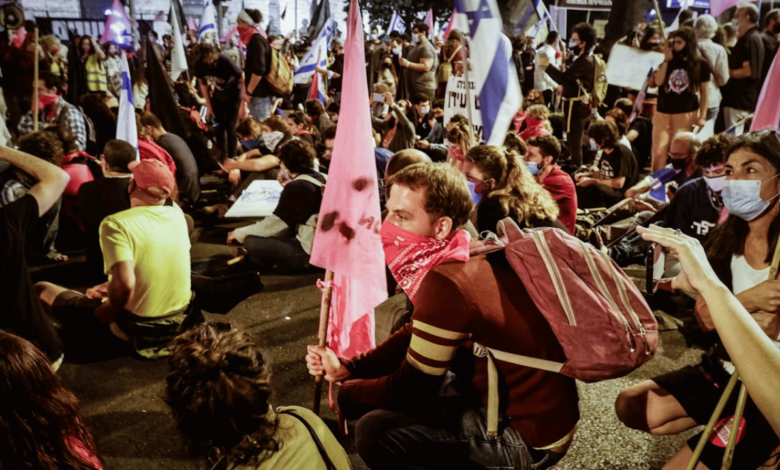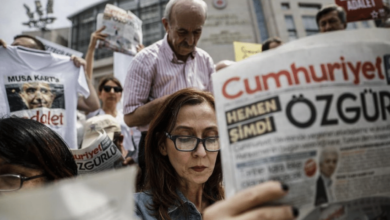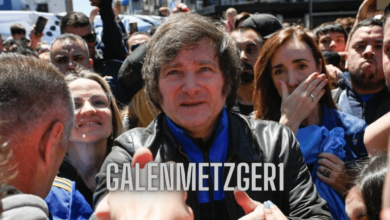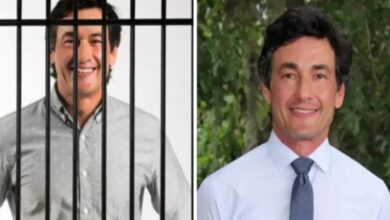Unmasking ‘The Human Gathering Fake’: Exploring Allegations of Fakery

In recent times, the phenomenon of ‘The Human Gathering Fake’ has sparked considerable controversy and skepticism among its audience. This article delves into the allegations surrounding this event, aiming to uncover the truth behind the claims of deception.
Understanding ‘The Human Gathering Fake’
‘The Human Gathering Fake’ purportedly promotes itself as a transformative event, promising profound experiences and personal growth for attendees. However, numerous individuals and online communities have raised doubts about its authenticity. Allegations range from staged testimonials to fabricated success stories, prompting deeper scrutiny of the event’s credibility.
Investigating Allegations
Critics argue that ‘The Human Gathering Fake’ relies heavily on emotional manipulation and psychological tactics to create an illusion of impact. Reports suggest that some participants were coached or incentivized to provide glowing reviews, raising concerns about the event’s integrity. Furthermore, discrepancies between advertised outcomes and actual attendee experiences have fueled suspicions of misleading marketing practices.
Challenging the Narrative
Proponents of ‘The Human Gathering Fake’ counter these allegations, emphasizing its positive impact on personal development and community building. They highlight testimonials from satisfied attendees who claim genuine transformation and empowerment. However, skeptics question the integrity of these accounts, pointing to inconsistencies and the lack of independent verification.
Analyzing Public Perception
The controversy surrounding ‘The Human Gathering Fake‘ underscores broader issues within the self-help and motivational seminar industry. It raises questions about transparency, ethical standards, and the accountability of organizers in delivering on their promises. Public discourse on social media platforms and consumer review websites reflects a polarized sentiment, with passionate advocates and disillusioned critics shaping the narrative.
The Impact on Attendees
Despite the controversies, attendees of ‘The Human Gathering Fake’ often report mixed experiences. Some participants expressed genuine satisfaction with the event’s content and activities, believing they have gained valuable insights and personal growth. Conversely, others feel misled by exaggerated promises and scripted interactions, leading to disappointment and disillusionment.
Legal and Ethical Concerns
The growing scrutiny surrounding ‘The Human Gathering Fake’ has also raised legal and ethical concerns. Critics argue that deceptive marketing practices and false advertising could potentially violate consumer protection laws. Moreover, allegations of psychological manipulation and emotional coercion highlight the ethical dilemmas faced by event organizers in promoting their offerings.
Media and Public Response
Media coverage and public discourse play a pivotal role in shaping perceptions of ‘The Human Gathering Fake’. News outlets and investigative journalists have documented the controversy, uncovering testimonies and evidence that challenge the event’s credibility. Social media platforms amplify these discussions, with hashtags and trending topics amplifying both support and skepticism towards the event.
Industry Accountability and Reform
The controversy surrounding ‘The Human Gathering Fake’ has prompted calls for greater accountability and transparency within the personal development industry. Stakeholders advocate for stricter regulations, independent oversight, and ethical guidelines to protect consumers from deceptive practices. Organizers are urged to uphold higher standards of integrity and honesty in their marketing and event execution.
Moving Forward
As ‘The Human Gathering Fake’ continues to generate debate and scrutiny, its legacy serves as a cautionary tale for consumers and organizers alike. Transparency, authenticity, and ethical conduct are increasingly valued attributes in an industry that promises personal transformation and empowerment. The ongoing dialogue encourages critical thinking and informed decision-making among those seeking to participate in similar events in the future.
FAQS
Q1: What exactly is ‘The Human Gathering Fake’?
A1: ‘The Human Gathering Fake’ is an event that claims to offer transformative experiences and personal growth opportunities through seminars and workshops. However, it has been subject to allegations and controversies regarding the authenticity of its outcomes and participant testimonials.
Q2: What are the main allegations against ‘The Human Gathering Fake’?
A2: Critics allege that ‘The Human Gathering Fake’ utilizes staged testimonials, emotional manipulation tactics, and misleading marketing practices to create an illusion of profound impact. There are concerns that some attendees may have been incentivized or coached to provide positive feedback.
Q3: Are there any legal implications associated with ‘The Human Gathering Fake’?
A3: The controversy surrounding ‘The Human Gathering Fake’ has raised legal concerns regarding consumer protection laws and deceptive advertising practices. There are calls for greater transparency and ethical standards within the personal development industry to safeguard consumer rights.
Q4: How has the media responded to ‘The Human Gathering Fake’?
A4: Media coverage of ‘The Human Gathering Fake’ has been extensive, with investigative reports and journalistic inquiries delving into the allegations of fakery and the impact on attendees. Social media platforms have also played a significant role in amplifying discussions and public scrutiny.
Q5: What should potential attendees consider before participating in similar events?
A5: Potential attendees should conduct thorough research and exercise critical thinking before participating in events like ‘The Human Gathering Fake’. It’s essential to verify the credibility of organizers, review genuine participant feedback, and be cautious of exaggerated claims or promises of transformation.
Conclusion
In conclusion, ‘The Human Gathering Fake’ represents a complex intersection of personal development, consumer rights, and ethical responsibility. While opinions on its authenticity vary widely, the controversy underscores the importance of due diligence and skepticism in evaluating transformative experiences. As stakeholders navigate these issues, the quest for genuine growth and meaningful change remains paramount in shaping the future of the industry.
You May Also Read: Inside Cumhuritey: A Comprehensive Guide to its Governance



